March 8th. International Women’s Day. It’s a day that celebrates the social, economic, cultural and political achievements of women, and marks a call to action for accelerating gender parity. In a company such as ours, where so many of our women authors work in male-dominated fields, we’re taking a look at what IWD means to them, and its relevance to the work they do. Here’s what some of them had to say:
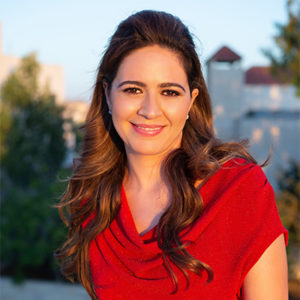
Author of Voices of Jordan
Rana Sweis
In a country where you have educated and talented young women, it’s painful to know the vast majority do not have access to opportunities in order to thrive. Jordan has one of the world’s lowest rates of female participation in the labour force and it is an impediment to economic, social and cultural development. My work as the founder and managing director of Wishbox Media, a digital storytelling and training company, gives me the opportunity to work with creative and talented women – photographers, videographers, social media specialists and designers — who unearth stories that need to be told. We believe in the power of creativity and the media in shedding light on political, social and economic issues that impact many lives. International Women’s Day is a reminder to celebrate, inspire and help each other.
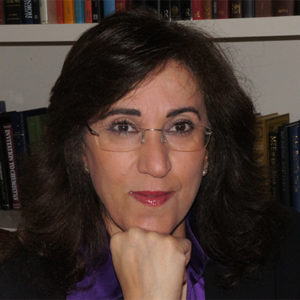
Author of Muted Modernists and Salman’s Legacy
.
Madawi Al-Rasheed
Women in academia have contributed great insights and scholarship on Saudi Arabia. From the work of anthropologists Soraya al-Torki to Eleanor Doumato, new horizons were opened only in the 1980s. Today these pioneer researchers are joined by new scholarly voices inside and outside the country. Being a woman, working on politics and religion comes with opportunities and obstacles. Women negotiate their access to the field in a context that is still hostile to their voices in a male dominated society. But they succeed in offering portraits of this country that derive from their immersion in closed circles that only women have access to. I have combined my academic training with sensitivity to complex local contexts. My book a Most Masculine State investigated gender, politics and religion and is now a standard text to understand historical discrimination against women in Saudi Arabia. Muted Modernists focused attention on a new Islamist modernist trend in Saudi Arabia that is unfortunately suppressed and most of its advocates are now detained. Their crime is to imagine a new political order in which democracy and Islam coexist. Choosing to study controversial topics in an authoritarian country is a challenge, as the researcher risks becoming persona non grata or even worse, detention. I have chosen to remain abroad to work in a free context.
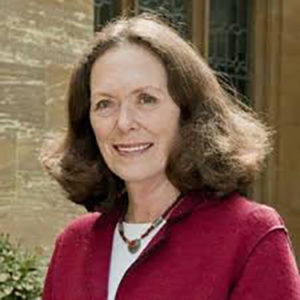
Author of Syria: The Making and Unmaking
of a Refuge State
.
Dawn Chatty
In the 1980s I ran a UN project on the edge of the Empty Quarter in Oman among camel herding tribes. I was responsible for extending government services to this community and for two years my authority was never questioned. Then towards the end of my second year in the desert, and seven months pregnant, the wind caught my loose-fitting desert gown and my condition became obvious. One of the elders of the tribe whispered to my guide, “Does she have a man”? and the positive reply settled the issue. My gender had never been a concern among these men, but my pregnancy had worried them, until they were assured, I was indeed married. How often people have been surprised to learn that my gender has never been an issue in my work in Middle Eastern societies; but adherence to social norms has always been important.
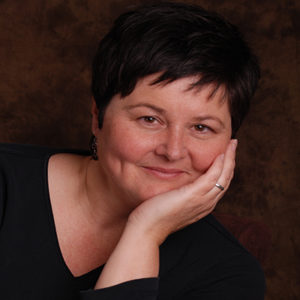
Author of An African in Imperial London:
The Indomitable Life of A.B.C. Merriman-Labor
.
Danell Jones
It is a truth universally acknowledged that women writing about history, politics, and science have a harder time than men getting their work published and reveiwed. The world may feel more comfortable when women write books about their own emotional journeys, but I believe they have important things to say about the world beyond their private lives. The experience of growing up and becoming a person in a female body is multifaceted and various, but it inevitably shapes a unique perspective on history, politics and other traditionally male-dominated subjects. Writers such as Jill Lepore and Mary Beard have shown us how to be fearless. Now’s the time to shake off naysayers, shake off doubt, shake off disappointment. And, as they say in that other male bastion—just do it.
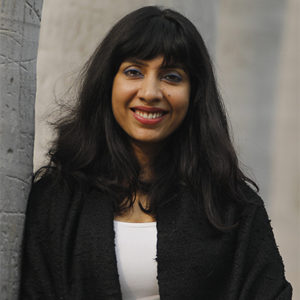
Author of Dreamers: How Young Indians are
Changing the World
.
Snigdha Poonam
Being a woman is central to my work. One of the reasons I became a reporter is that the kind of enterprising stories I was interested in reading were mostly written by men through a clearly male perspective. Reporting from small towns of India for Dreamers, I was able to see the aspirations, anxieties and anger of the subjects as being tied to their insecurities as men who no longer knew their place in their families, communities and country. It helped to not be a man myself. I am fortunate to be a professional journalist at a time when women are at the top of the field with their work. My hope this International Women’s Day is that they be up there with their positions and pay scales as well soon.
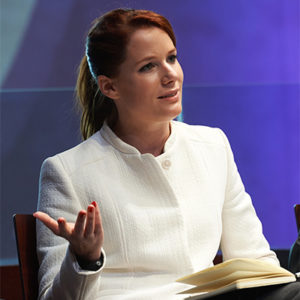
Author of Guardians of the Arab State
and Co-author of The Cauldron:
NATO’s Campaign in Libya
.
Florence Gaub
When I first started out at NATO, a high-ranking general told me that I had been hired ‘even though’ I was a woman. But in my experience, being female and working on Middle Eastern security comes with as many advantages as disadvantages. Granted, I cannot walk down the street in Baghdad by myself at the moment, and I cannot convincingly engage in locker-room talk. But precisely because I am not the norm, I have visibility, and I can connect to people, both men and women, in a way a man cannot. It sounds like a cliche, but using my perceived weakness as a strength has served me well.
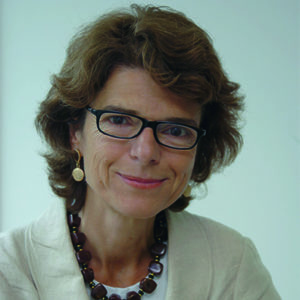
Author of Women vs Capitalism: Why We Can’t Have It All in a Free Market Economy
.
Vicky Pryce
Women need mentoring and support. The most interesting development in recent years is that they are less afraid to ask for it. I have had women I had never met before open conversations with me on trains and me ending up by the time I reach my destination agreeing to mentor yet another woman struggling with career and family and against preconceived notions of where a woman’s place should be! There is an increasing understanding also that networking matters. It has after all worked for men for a very long time. In my field we established what is known as the Women Economists Network in the UK comprising both public and private sector economists. Right now the Government Economics Service of which I had been the first female Head in the late 2000s, sharing it with my equivalent grade male economist in the Treasury, has two Joint Heads, both female! Amazingly the current chief economists of the International Monetary Fund, the World Bank and the OECD are all women for the first time ever. But progress of women economists in the private sector and academia remains woeful.
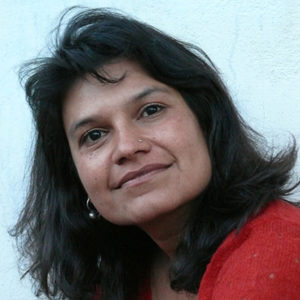
Author of Nightmarch: Among India’s
Revolutionary Guerrillas
.
Alpa Shah
In the toughest moments of our journey, it is the silent fortitude, resilience and courage of the women who have nurtured us that point towards how we can lift ourselves up, stand tall and march on. This International Women’s Day, I celebrate my aunt Nutan, who, long before she had to learn to walk again, unknowingly taught those around her the most important steps in life. The work to be most valued is not the one from which money, fame or status is extracted but that which is too rarely recognized; the labour of care.
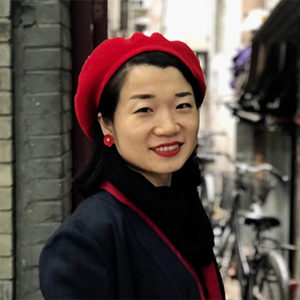
Author of Under Red Skies: The Life and Times of a Chinese Millennial
.
Karoline Kan
As a writer and journalist, I have heard many astonishing stories about women: in China, male babies are preferred so female fetuses are aborted; school-age girls are being forced by their parents to drop out of school and work to support their brothers financially; young women are denied job opportunities because their employers believe they are less capable than men; married women are told by their in-laws their main job is to take care of their husband and children…These stories, which are happening right now, are one of the reasons why we need to celebrate International Women’s Day. We need this special day to remind us that there have been generations of women who fought for us to enjoy what we have today, which we shouldn’t take for granted; we also need this day to remind us things are far from perfect and there’s a long way to go.
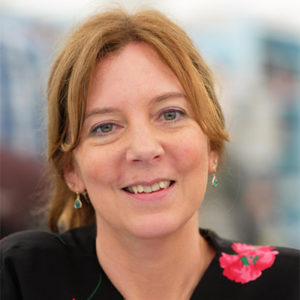
Author of Everything You Have Told Me is True: The Many Faces of Al-Shabaab
.
Mary Harper
I am puzzled about my role as a woman when speaking to jihadis. I wonder if they would be so forthcoming and open, even caring about my personal welfare, if I was a man. I find my relationship with the jihadis highly troubling, especially when I hear stories from men, women and children about what they have had to endure under jihadist rule. But even these stories are contradictory, with some women saying they are treated well, others that they are treated as sub-humans.
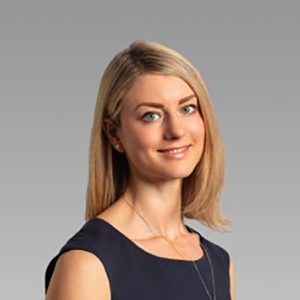
Author of A Woman’s Place
.
Joana Cook
Whether presenting at a conference, or walking into a classroom to lecture, there is still a good chance I will be mistaken for support staff or a student. This is generally where it starts – the next hurdle becomes having my research, and myself as a researcher, taken seriously. I focus on policy and practice related to terrorism and counterterrorism – traditionally considered a man’s world. Since I’ve entered this field more brilliant and talented women have been focusing on security research, and some men have proven key partners and allies in our work. While there have been hurdles in this field, this work is important and I’m privileged to do it. I hope this IWD more women consider it.
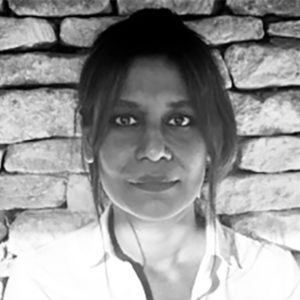
Author of Jerusalem on the Amstel
.
Lipika Pelham
I would not like to call myself a “female author”. I don’t think the inspiration for writing has anything to do with my gender identity. But in terms of the solitude and space that an author needs to get on with her or his work, a woman author is not always entitled to such luxuries. The race against time – as I divide my work day into many segments – reminds me, however, that I am an author who also happens to be a woman. I cherish the daily hours available to me, which begins when I drop off my youngest child at school, and ends when I pick him up from afterschool club. I usually get back to my desk later in the evening, to snatch a few extra hours. The restricted time forces me to be organised and super-productive. I’m usually good with deadlines, and publishers’ deadlines are not more lenient with women authors just because they have motherly or other domestic duties. International Women’s Day is none other than an occasion for celebration of our collective achievement, which includes our important roles as anchors of our families.